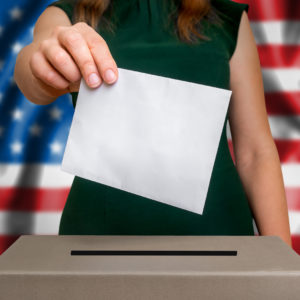Partisan voters’ minds have long been made up. Both parties’ bases will vote their ticket regardless of any particular issue. Yet independents and those without a strong allegiance to a party will decide whom to support for Congress based on how they feel about the direction of the country, and what the parties promise on a host of issues.
The Economy: Republicans have a strong case to make that Americans are better off now and that the economy is in better shape today than it has been in decades. The tax cuts and efforts to cut unnecessary red tape have fueled a surge in job creation, a rising stock market and rising wages. One million fewer Americans are living below the poverty line than in 2016. Millions more have jobs, including 600,000 African-Americans and 500,000 Hispanic-Americans. Unemployment is at historic lows.
Democrats have an uphill battle to convince voters that a takeover in Congress won’t undermine this clear progress.
Health Care: Democrats are trying to convince voters that Republicans will undo current protections for those with pre-existing conditions. Yet Republicans have consistently voted to extend requirements to ensure people with costly conditions have access to insurance. The question is how best to do that.
The regulations imposed through the Affordable Care Act dramatically increased costs and pushed insurance providers out of the marketplace, leaving everyone with fewer options. Republicans want a different approach to bring more providers into the market and prices down, while focusing aid on those who really need it.
Many voters recognize that the Affordable Care Act created more problems than it solved, but are disappointed Republicans haven’t built consensus on a better direction. Republicans need to show voters that they have a plan to give people more and better choices, while protecting the vulnerable.
Immigration and the Law: Caravans of illegal immigrants seeking to cross our borders are making border control and immigration central issues again. Even most voters who support allowing more people to enter our country recognize the need for basic border control. They know it isn’t fair or healthy to allow millions of people from just one country or region entrance, while blocking people from Asia and Africa, where conditions are just as challenging.
America already welcomes around 1 million immigrants each year. More than 13 percent of our population — about one in eight people in the United States — are immigrants. America has more immigrants — a lot more — than any other country. Other nations have far less compassionate immigration systems: Canada, for example, prioritizes entry for highly educated immigrants while discriminating against single men.
While we want compassion for those who seek a better life in America, we also need a real border and rules for who gains entry. That’s fair to the millions of people around the world who wish to come to America and, more important, to everyone — citizen and immigrant — who already lives here.
Civility: Even many who lean Republican are concerned that the president, with his tweeting and habit of name calling, is making our already coarse culture even more hostile. Yet the recent behavior of Democratic activists and leaders stoking uncivil violence and mob tactics may encourage independents to decide that Democrats are even less suited for improving our political environment.
Most Americans of both parties see hounding elected and administrative officials out of restaurants and other public spaces as entirely inappropriate. Physical attacks on members of Congress should be unequivocally and strongly condemned. Protests should be peaceful, and not descend into violence like we’ve seen on too many college campuses, when conservatives dare to speak. Too many Democrats — from Hillary Clinton to Sen. Corey Booker to Rep. Maxine Waters to Eric Holder — seem to be stoking people’s worst instincts.
This was especially apparent during Justice Brett Kavanaugh’s confirmation hearings, during which many Democrats and liberal media outlets abandoned any pretense of fairness and seemed to relish publicizing even far-fetched and baseless allegations against him. Everyone wants allegations of sexual misconduct taken seriously. But we also believe in the presumption of innocence and a fair process.
Democrats’ any-means-necessary mentality disturbed many, and was fundamentally at odds with how nominees in other administrations have been treated.
As with the 2016 election, many independents likely feel like they face an imperfect choice. Yet with the economy growing, and Democrats promising incivility and an abandonment of the rule of law, many may decide the status quo is better than this kind of blue wave.

